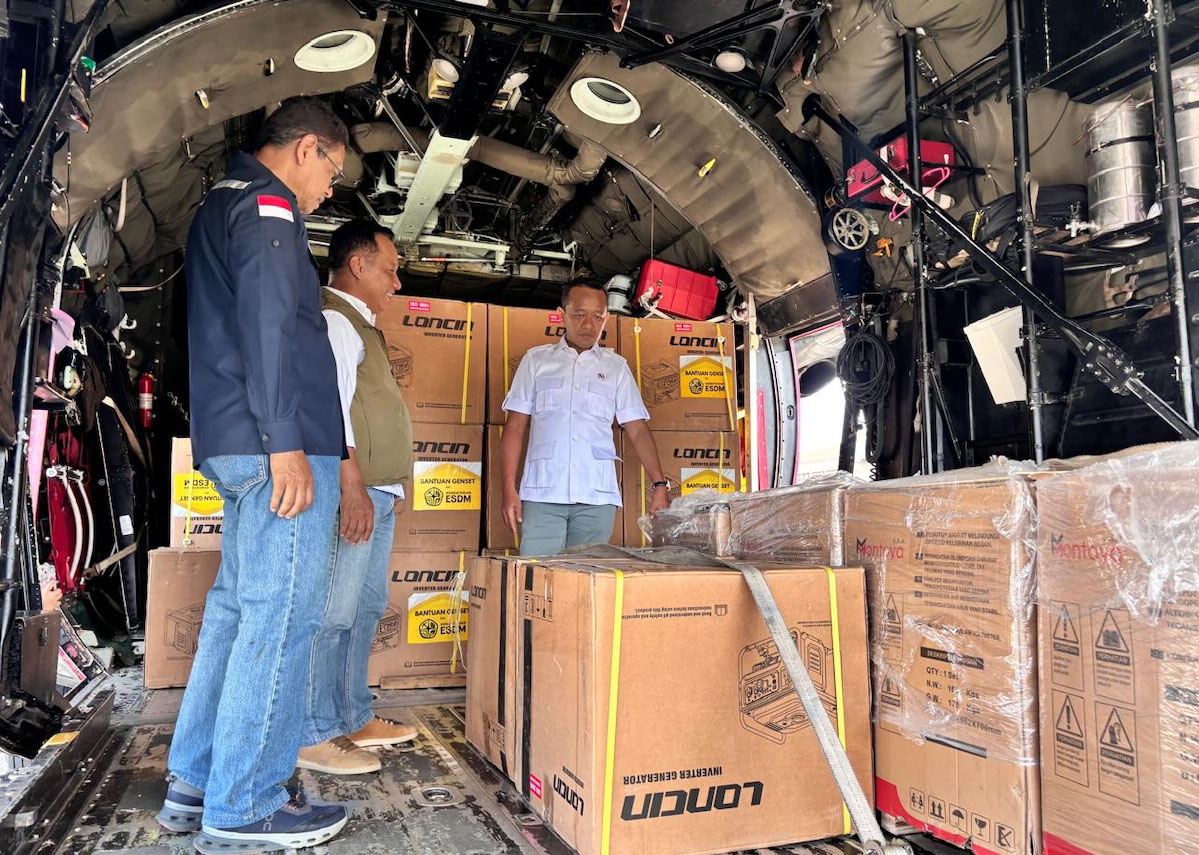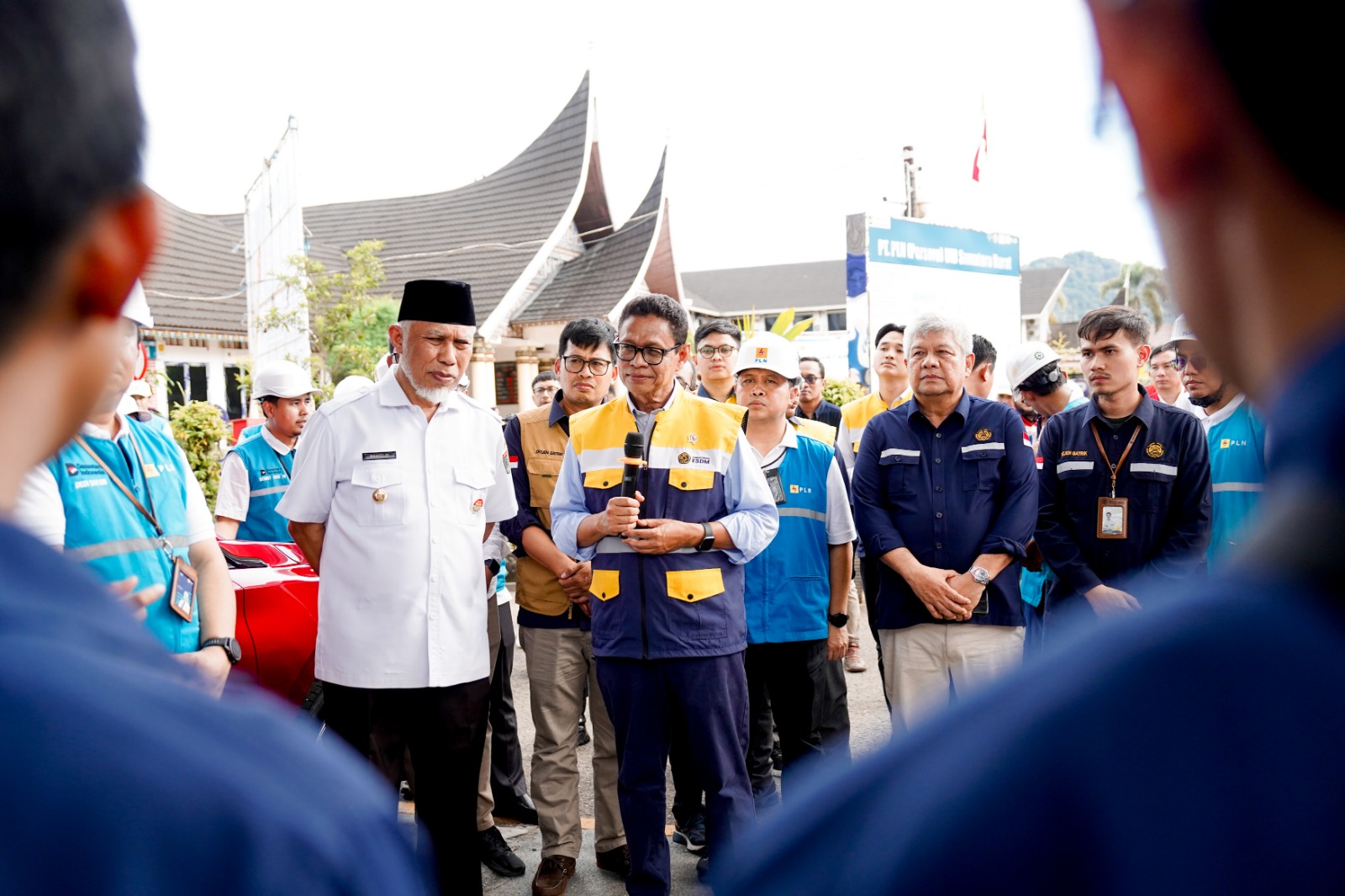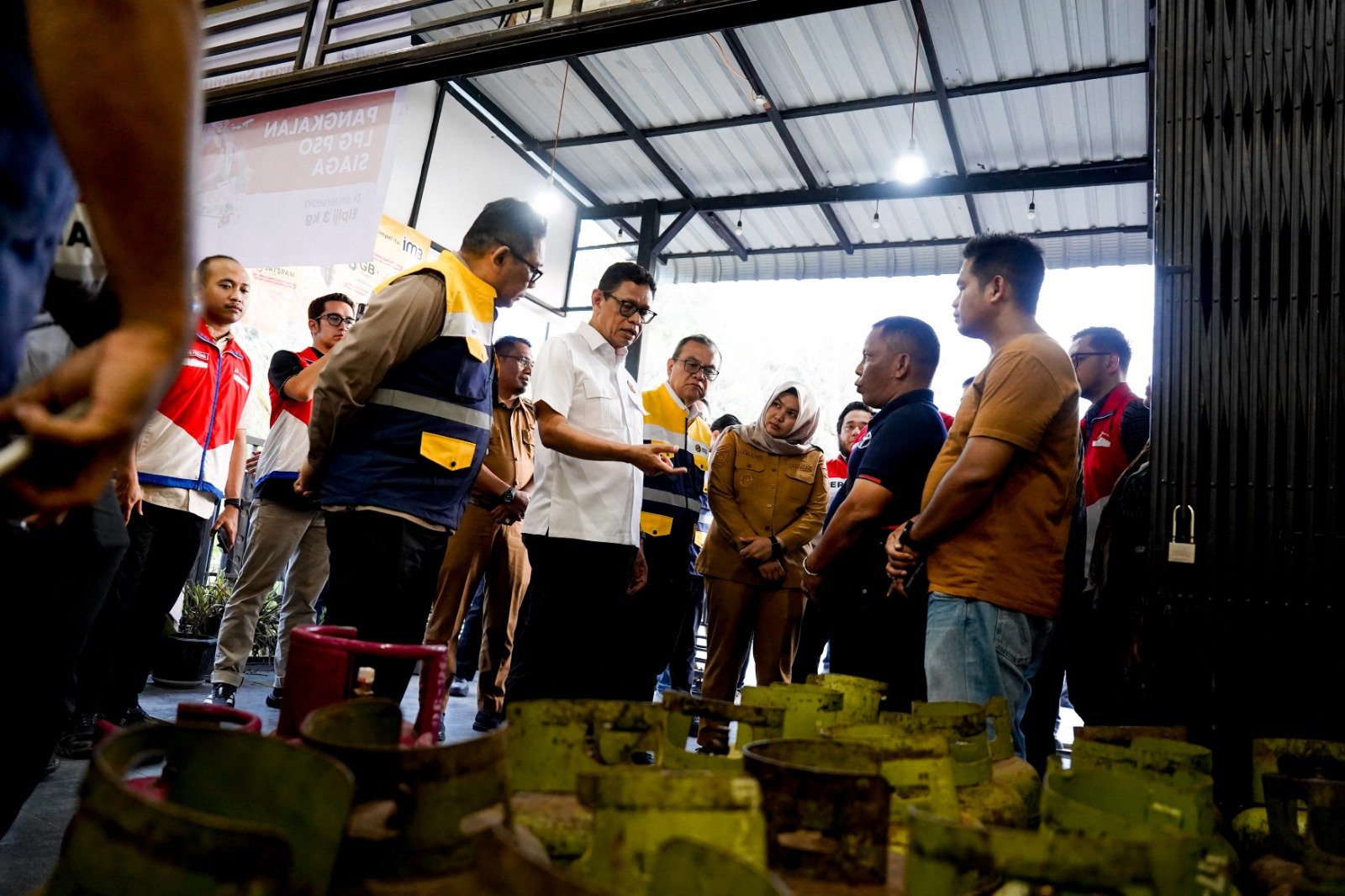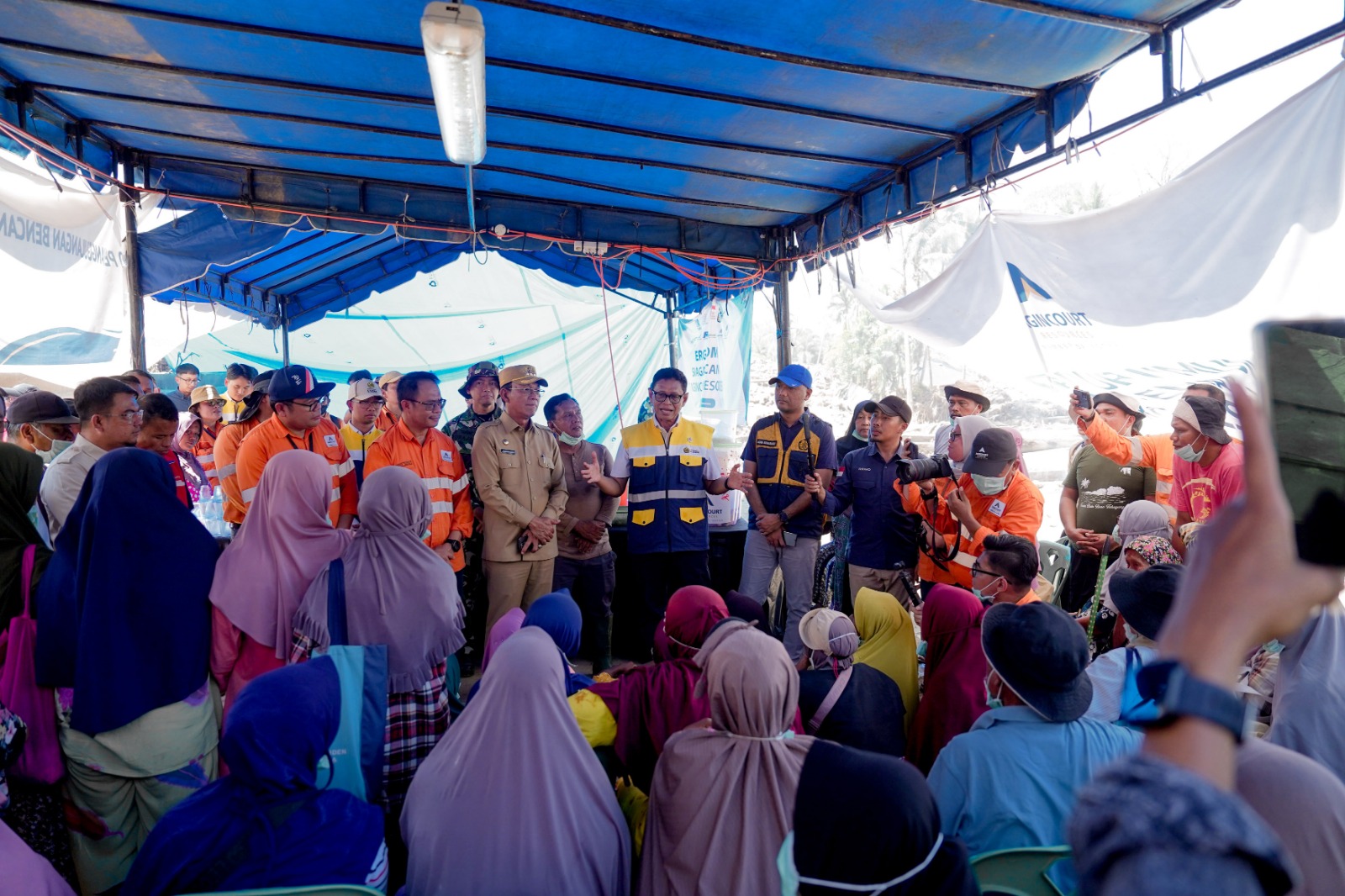Energy Ministry Encourages Communication and Transparency in Extractive Industry Data
MINISTRY OF ENERGY AND MINERAL RESOURCES
REPUBLIC OF INDONESIA
PRESS RELEASE
NUMBER: 425.Pers/04/SJI/2021
Date: 3 December 2021
Energy Ministry Encourages Communication and Transparency in Extractive Industry Data
The Ministry of Energy and Mineral Resources (EMR) has continuously encouraged communication and transparency in extractive industry data to meet the target of low-carbon sustainable development.
Head of Center for Data and Information Technology of the Ministry of EMR, Agus Cahyono Adi, said all stakeholders had to build communication to maximize the utilization of the extractive industry.
"The extractive industry is closely related with the management of natural resources, which carbon intensity is quite high. We must work together to communicate this. So, we focus on how we build communication between parties to inform that (in our journey) to NZE (net zero emission), the mining sector can still continue to contribute, either directly or through transition," said Agus in a thematic policy dialogue titled "The Importance of Extractive Industry Transparency in Low-Carbon Sustainable Development" on Friday (3/12).
The energy transition will change the face of the extractive industry. These changes will impact on all stakeholders, from the central government, local governments, business entities, to the community.
"Let's prepare ourselves together. Of course, this change will impact on all stakeholders. We need to improve communication with local governments, DPRD (regional house of people's representatives), and the community about how to plan the transition and use fossil energy properly. This, of course, requires transparency in the extractive industry data," said Agus.
According to Agus, the extractive industry proves that it impacts on the economic sector positively. Transparency of data and information about revenues from the extractive industry is needed to promote economic development.
"The impacts of the extractive industries on the economy are clear. We can see that several areas have developed, triggered by the presence of extractive industries, and then these areas have thrived until now. (Let's think) How to take advantage of the revenues from natural resources, to replace such revenues when the resources deplete, and develop the resources. That (process) must be transparent, how to manage the revenues from the extractive industry to promote sustainable economic development," he said.
Indonesia has joined the Extractive Industries Transparency Initiative (EITI) since 2010. To date, EITI Indonesia has released reports on oil, gas, mineral, and coal resources data for ten fiscal years (2009-2018). The reports include, among others, ease of licensing via online services, revenue transparency, overlapping work areas, and the beneficial ownership (BO) of each business entity.
"Such transparency includes complete information on work areas. Work area contracts must contain a clause to disclose the BO of each business entity to its second and third layers. So, together we can monitor the revenues from natural resources," explained Agus.
With extractive industry data that can be accessed equally by all parties, the central government and local governments can develop energy transition plans. In addition, with the data and information, stakeholders can conduct analyses to measure the impacts and benefits of energy transition from social and economic perspectives.
In addition, transparency of extractive industry data will assist and support industry players, local governments, communities, and academics to decide on the most appropriate positions, decisions, and implementation of transition schemes at the local, provincial and national levels. Therefore, transparency of extractive industry data and information is important for efforts to promote sustainable energy in Indonesia.
The EITI, which has become the global standard for transparency of state revenues from the extractive industry, has had positive impacts on Indonesia because it has created good governance, public accountability, and a better investment climate as well as prevented corruption. Indonesia's EITI report is expected to become more advanced and detailed to support the energy transition, and even become a standard for other countries, given Indonesia's unique condition.
In the future, in line with the global commitment to address the impacts of climate change and reduce dependence on fossil energy, transparency in the extractive industry will determine the restructuring of business by business actors. In addition, data transparency also helps local governments to plan transitions and economic development strategies to be carried out.
For the community, transparency in the extractive industry data is useful because it will provide them with an understanding about the transition to better energies. This way, the community is involved in development planning and revenues allocation from natural resources to ensure optimal support for energy and economic transition.
For the record, Indonesia's primary energy is dominated by fossil fuels, which accounts for 87.8 percent of total primary energy, and the burning of such fuels has led to climate change. Therefore, energy transition is necessary to achieve sustainable development goals. In addition, the Indonesian government has also committed to achieving Net Zero Emission (NZE) by 2060 or sooner. To meet this goal, data transparency is needed from extractive industry, namely the oil and gas and the mineral and coal industries. (IY)
Head of Bureau of Communication, Public Information Services, and Cooperation
Agung
Pribadi (08112213555)
Share This!






